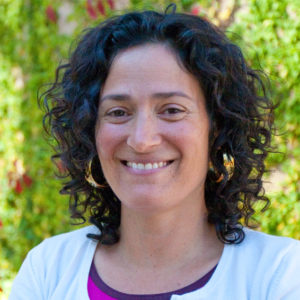Stanford Criminal Justice Center Publishes Report Examining Consequences of Virtual Criminal Courts
Majority of defense attorneys surveyed agreed the shift to virtual proceedings compromised access to justice
Stanford, CA — The Stanford Criminal Justice Center today published a report titled “Virtual Justice? A National Study Analyzing the Transition to Remote Criminal Court” that examines the staying power of the “virtual” or “remote” criminal court: the use of teleconferencing and videoconferencing in lieu of in-person hearings in criminal cases that were largely eliminated due to the COVID-19 pandemic. Research includes both qualitative interviews with close to 60 judges, prosecutors, defense attorneys, and court administrators in three jurisdictions (Miami-Dade County, Milwaukee County, and the Northeast Judicial District of North Dakota) and a quantitative analysis of a national survey completed by 240 defense attorneys who practice in the state court system. Together, the quantitative and qualitative findings provide one of the most thorough portraits of virtual criminal proceedings to date and show that aspects of virtual court compromised access to justice.

The report was compiled by Stanford Law School (SLS) students enrolled in the policy practicum, “COVID-19 and the Effect of Video Technology on Indigent Defense Services,” co-taught by Robert Weisberg, JD ’79, Edwin E. Huddleson, Jr. Professor of Law and faculty co-director of the center, and Debbie Mukamal, its executive director. The SLS team partnered with the National Association of Criminal Defense Lawyers (NACDL) to develop the survey and recruit study participants.
“The pandemic hit so suddenly and there was no time for our criminal legal system to examine best practices and study the effects of moving to virtual court before its implementation,” said Mukamal. “But over the past year, this project has sought to learn from some of those swept up in this impromptu experiment. We believe our study can help inform whether and how the criminal legal system uses virtual technology in a post-COVID world.”
Client Communication Harmed, Access Challenges Cited

One of the main takeaways from the report pertained to attorney-client communication being impaired by virtual technology. Among defense attorneys who participated in the national survey, more than 66 percent agreed that the shift to virtual proceedings was detrimental to communications with their clients, making it difficult to engage in confidential conversations, build relationships, share discovery, and maintain contact. Interviewees of all types from the three jurisdictions reinforced all of these concerns, including identifying instantaneous in-court communications as part of the loss in communication. “Being able to discuss what is happening in real time with your client while a proceeding is taking place is central to the role of a criminal defense attorney. Doing court by Zoom undermines this function.” said Weisberg.
A majority of interviewees also expressed concerns about access to phones, internet connections, computers, private spaces, camera and smartphone applications. Defense attorneys and judges raised these concerns more frequently than prosecutors. Defense attorneys echoed these concerns in the quantitative survey, indicating that both in-custody and out-of-custody defendants lack consistent access to technology and private spaces conducive to virtual proceedings, with access being more challenging for those who are detained in correctional facilities.
Substantive Hearings Should Not Be Virtual, Dehumanization and Constitutional Concerns Flagged

Another finding of the study was that most respondents believe that contested hearings, especially trials, should not be conducted virtually. “The physical cues and emotional richness of in-person communication are reportedly diminished over virtual platforms, and interviewees were generally not willing to accept that loss in something as important as a trial or witness examination,” said Taylor Benninger, JD ’21, one of the law students who authored the study. “On the flip side, many interviewees agreed that minor, nonsubstantive hearings could use virtual platforms in the future,” reflecting efficiency benefits such as savings in time and money for working-class defendants or those with children. Interviewees expressed mixed feelings about efficiencies, though, noting multitasking opportunities but mourning the loss of productive informal conversations in courthouse hallways. A handful of interviewees explicitly noted that efficiencies should not be the focus, at least not at the expense of the administration of justice.
Most of the interviewees felt that virtual technology results in an intangible loss, fewer nonverbal cues, a reduced ability to communicate, or a dampening of emotional connections. As a consequence, several interviewees expressed concerns about a lack of empathy for the defendant, which they worried would translate into harsher sentences and lower trust in the judiciary. Respondents of all types (judges, prosecutors, defense attorneys) worried about the effects of videoconferencing for witness examinations. Many found it harder to assess credibility, worried about witnesses being coached or influenced, and mourned the lack of testimonial formalities. Alternatively, some noted that videoconferencing enabled the court to hear testimony from witnesses who might not have otherwise participated in proceedings.
Interviewees from the three jurisdictions also conjectured that the use of virtual technology could trigger constitutional concerns – specifically issues related to the Confrontation Clause (the right to confront a witness) – that the courts will eventually need to decide.
“Criminal defense lawyers have worked heroically during the pandemic to ensure that our clients are treated fairly and humanely in the criminal legal system,” said NACDL President Martín Antonio Sabelli. “That is why their input was fundamental to this report.”
The Future of Virtual Proceedings
Most interviewees felt that contested hearings, and especially trials, should only be conducted in person; some of the strongest reactions in the study came from interviewees vehemently objecting to remote jury trials. However, some felt that minor hearings like status conferences and calendaring should remain virtual post-pandemic given the efficiencies accrued by having these proceedings conducted remotely. Overall, respondents advocated for flexibility in the use of virtual technology, according to the case-specific needs of the defendant and the attorney.
This findings of the study were consistent with previous research and illuminate some promising practices for virtual court, namely, the appropriateness of audio conferencing versus video conferencing, the importance of an optimal video conferencing setup, and the need to ensure that defendants are not prejudiced by suboptimal setups and overly informal virtual mannerisms.
Important areas for further research identified in the report are assessing the effects of virtual technology on individual case outcomes and surveying individuals whose cases were processed using virtual technology to assess their first-hand experiences.
The full report will be widely shared with court administrators, defense attorneys and prosecutors across the county. here.
About the Stanford Criminal Justice Center
Founded in 2005, the Stanford Criminal Justice Center (SCJC) serves as a research and policy institute on issues related to the criminal justice system. Its efforts are geared both towards generating policy research for the public sector, as well as providing pedagogical opportunities to Stanford Law School students with academic or careers in interests in criminal law and crime policy. SCJC is led by Faculty Co-Directors Professors David Sklansky and Robert Weisberg and Executive Director Debbie Mukamal.
About Stanford Law School
Stanford Law School is one of the nation’s leading institutions for legal scholarship and education. Its alumni are among the most influential decision makers in law, politics, business, and high technology. Faculty members argue before the Supreme Court, testify before Congress, produce outstanding legal scholarship and empirical analysis, and contribute regularly to the nation’s press as legal and policy experts. Stanford Law School has established a model for legal education that provides rigorous interdisciplinary training, hands-on experience, global perspective and focus on public service, spearheading a movement for change.
